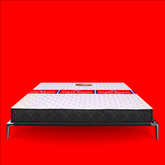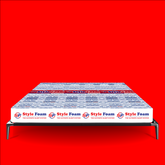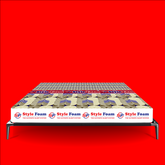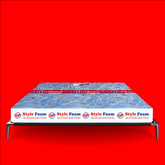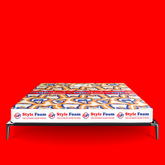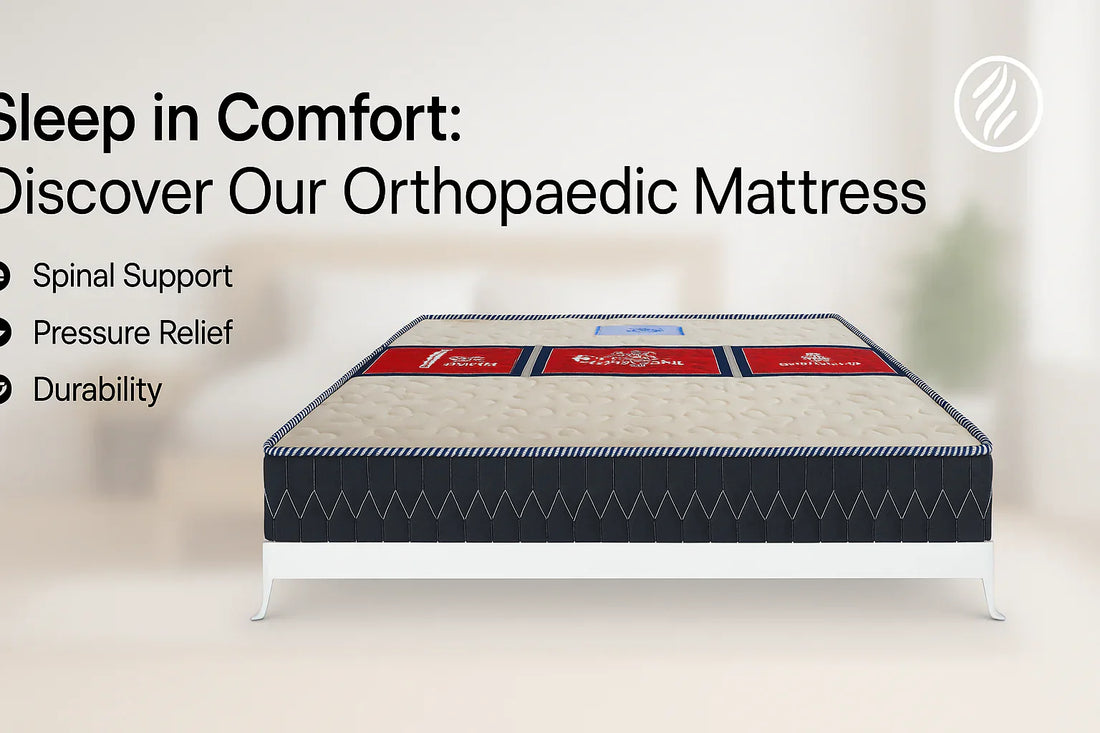Getting a good night’s sleep is one of the most important contributors to overall health and well-being. And at the heart of quality sleep lies a key component: your mattress. Whether you're waking up with aches and pains, feeling unrested, or simply haven’t replaced your bed in years, choosing the right mattress can make a world of difference. In this comprehensive guide, we’ll walk you through everything you need to know about picking the best mattress for your sleep needs.
Why Your Mattress Matters
Many people underestimate the importance of a mattress, thinking it’s just another piece of furniture. However, the quality and type of mattress you sleep on can significantly impact your:
-
Spinal alignment
-
Sleep quality
-
Muscle recovery
-
Mental clarity
-
Chronic pain levels
Sleeping on the wrong mattress can contribute to insomnia, back pain, and even long-term posture problems. That’s why it’s critical to invest time and thought into selecting the right one.
Signs You Need a New Mattress
Before diving into mattress types, let’s identify whether it’s time for a new one. Here are common signs:
-
Your mattress is more than 7-10 years old
-
You wake up with stiffness or back pain
-
You feel sagging, lumps, or coils poking through
-
It makes noise when you move
-
You sleep better on hotel beds or at someone else’s house
If any of these resonate with you, it’s probably time for a replacement.
Understanding Mattress Types
Choosing the right mattress starts with understanding the different types available. Each type offers unique benefits based on your preferences and sleep style.
1. Innerspring Mattresses
These are the traditional coil-based mattresses, known for their firm support and bounciness.
-
Pros: Affordable, widely available, good airflow.
-
Cons: Less contouring, can wear out faster.
2. Memory Foam Mattresses
These mattresses mold to your body, offering pressure relief and motion isolation.
-
Pros: Excellent support, pain relief, minimal motion transfer.
-
Cons: Can trap heat, initial odor.
3. Latex Mattresses
Made from natural or synthetic latex, these are known for being durable and eco-friendly.
-
Pros: Long-lasting, cooler than memory foam, hypoallergenic.
-
Cons: Expensive, heavier to move.
4. Hybrid Mattresses
Combining innerspring coils and foam layers, hybrids offer the best of both worlds.
-
Pros: Balanced comfort and support, good airflow.
-
Cons: Pricey, heavy.
5. Airbeds
Not to be confused with camping air mattresses, these high-end beds use adjustable air chambers.
-
Pros: Customizable firmness, great for couples with different needs.
-
Cons: Expensive, complex setup.
Factors to Consider When Choosing a Mattress
Now that you understand the types, let’s talk about how to choose one based on your unique sleep needs.
1. Sleeping Position
Your sleep position plays a major role in the type of mattress that’s best for you.
-
Side Sleepers: Need a softer mattress (memory foam or hybrid) for shoulder and hip pressure relief.
-
Back Sleepers: A medium-firm mattress that supports the spine and lower back is ideal.
-
Stomach Sleepers: A firmer mattress helps keep the spine aligned and prevents sinkage.
2. Body Type and Weight
Heavier individuals typically need firmer support to prevent sagging, while lighter sleepers might find comfort in softer options. A good mattress should distribute weight evenly and maintain proper support regardless of body type.
3. Firmness Level
Firmness is subjective, but typically rated on a scale from 1 (softest) to 10 (firmest).
-
Soft: Great for pressure relief but may lack support for heavier sleepers.
-
Medium: A universal choice suitable for most people.
-
Firm: Ideal for those who need more support, especially stomach sleepers and heavier individuals.
4. Temperature Regulation
If you sleep hot, opt for a mattress with cooling properties such as gel-infused memory foam, latex, or hybrid mattresses with breathable coil layers.
5. Motion Isolation
Sharing a bed? Choose a mattress with excellent motion isolation, like memory foam or latex, to avoid disturbances when your partner moves.
6. Allergies
Hypoallergenic mattresses like natural latex or those with antimicrobial covers are perfect for allergy sufferers.
7. Budget
Mattresses vary in price from $200 to over $3000. While it’s tempting to go for cheaper options, remember that your health and comfort are at stake. Look for a mattress that balances quality and affordability.
Mattress Shopping Tips
Shopping for a mattress can be overwhelming. Here are some tips to simplify the process:
-
Try Before You Buy: If possible, test the mattress in-store or take advantage of online brands that offer a 100-night trial period.
-
Check Return Policies: Make sure there’s a risk-free return option.
-
Read Reviews: Customer reviews provide real insights into performance and durability.
-
Compare Warranties: A good mattress should come with at least a 10-year warranty.
-
Buy Online vs In-Store: Online mattresses often offer better deals and free delivery, while in-store allows you to test the product firsthand.
Best Mattress Brands in 2025
While the best mattress is subjective, here are some top-rated brands known for their quality and innovation:
-
Tempur-Pedic – Famous for luxurious memory foam.
-
Saatva – Premium hybrid and innerspring options.
-
Casper – Popular online brand with great customer support.
-
Purple – Innovative grid technology for airflow and support.
-
Avocado – Eco-friendly latex mattresses.
How to Maintain Your Mattress
Once you’ve invested in a good mattress, proper care will help prolong its life:
-
Rotate it every 3–6 months to prevent uneven wear.
-
Use a mattress protector to guard against spills, dust, and allergens.
-
Avoid jumping or standing on it, which can damage the inner structure.
-
Clean it regularly by vacuuming and airing it out.
-
Follow manufacturer instructions for maintenance and cleaning.
Final Thoughts
Choosing the right mattress is not just about comfort—it’s about enhancing your health, sleep quality, and overall lifestyle. With so many options available, the process might seem daunting, but by understanding your personal sleep needs and doing a bit of research, you can find the perfect mattress that supports deep, restful sleep night after night.
Investing in the right mattress today means better mornings, improved focus, and a healthier you tomorrow. Don’t underestimate the power of a good night’s sleep—because it all starts with the right mattress.

